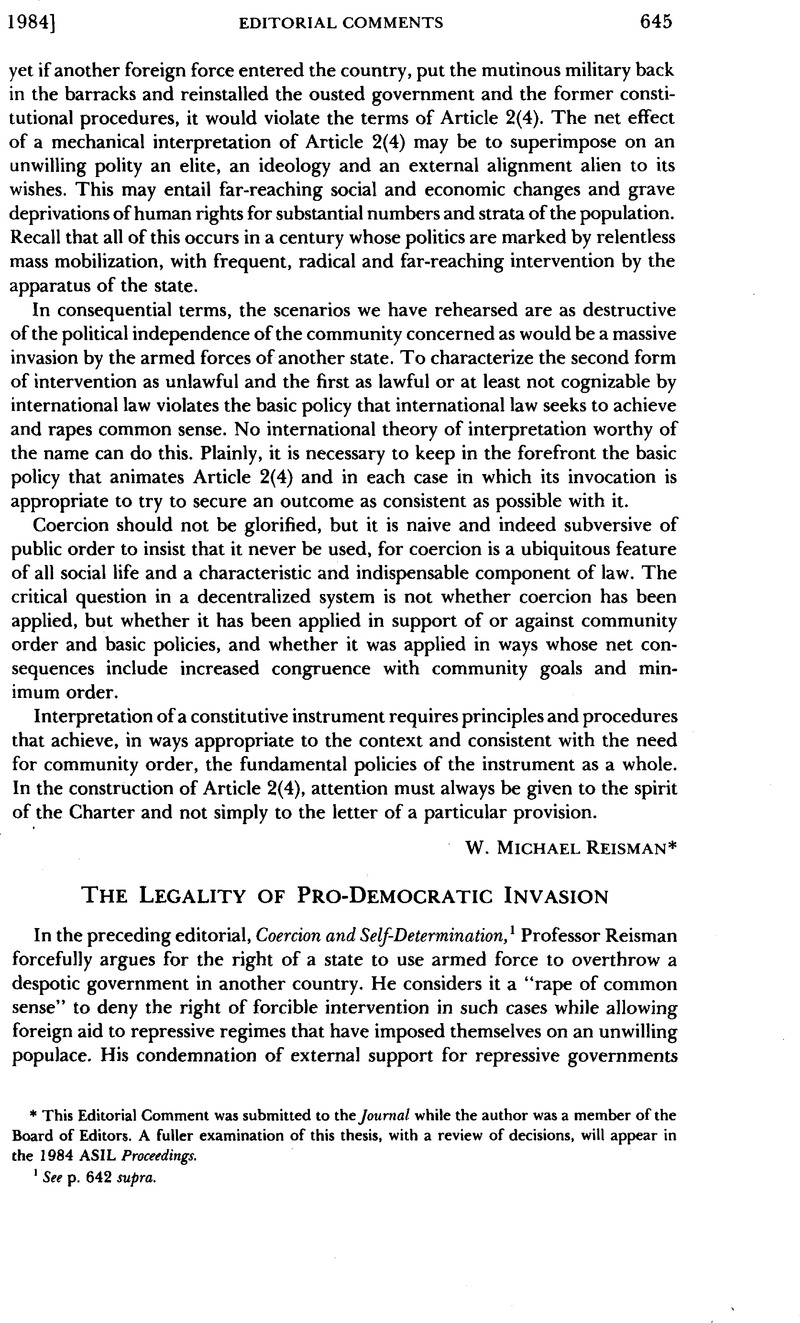Article contents
The Legality of Pro-Democratic Invasion
Published online by Cambridge University Press: 23 March 2017
Abstract

- Type
- Editorial Comments
- Information
- Copyright
- Copyright © American Society of International Law 1984
References
1 See p. 642 supra.
2 Nor have I found support for that interpretation in any scholarly commentary. McDougal and Feliciano, who stress the dangers of totalitarian rule, squarely reject the idea of using force to expand democratic values in other countries. “Any violent expansion involves a destruction of values incompatible with the overriding conception of human dignity.” M. McDougal & F. Feliciano, Law and Minimum World Public Order 188 (1961). See also note 8 infra.
3 On Central America, see, e.g., President Reagan’s address of May 9, 1984, 20 Weekly Comp. Pres. DOC. 676 (May 11, 1984); Motley, Assistant Secretary of State, Is Peace Possible in Central America?, Dep’t St. Bull., No. 2084, March 1984, at 67-69. See also material quoted in dissenting opinion of Judge Schwebel in Case Concerning Military and Paramilitary Activities in and against Nicaragua (Nicar. v. U.S.), 1984 ICJ Rep. 169, 191-99 (Order of May 10), reprinted infra at p. 750.
4 See Davis, Robinson, Legal Adviser, U.S. Dep’t of State, Contemporary Practice, infra at p. 661 Google Scholar; Kenneth, Dam, Deputy Secretary of State, Contemporary Practice, 78 AJIL 200 (1984)Google Scholar.
5 For general discussion of the problem, see Schachter, , The Right of States to Use Armed Force , 82 Mich. L. Rev. (forthcoming, 1984)CrossRefGoogle Scholar.
6 1976 Digest of United States Practice in International Law 150-51.
7 Waldock, , The Regulation of the Use of Force by Individual States in International Law , 81 Recueil des Cours 451, 467 (1952 II)Google Scholar; Waldock, , General Course on Public International Law , 106 id. at 1, 240 (1962 II)Google Scholar.
8
The fundamental import of the conditions of power which, in the contemporary global arena, manifest themselves in a precarious equilibrium of capacity for inflicting fearful destruction, is that the proponents of one system cannot destroy by violence the proponents of the other without bringing their own world to enduring radioactive ruin.
M. McDougal & F. Feliciano, supra note 2, at 189.
9 Corfu Channel case, 1949 ICJ Rep. 4, 35 (Judgment of Apr. 9).
- 31
- Cited by


